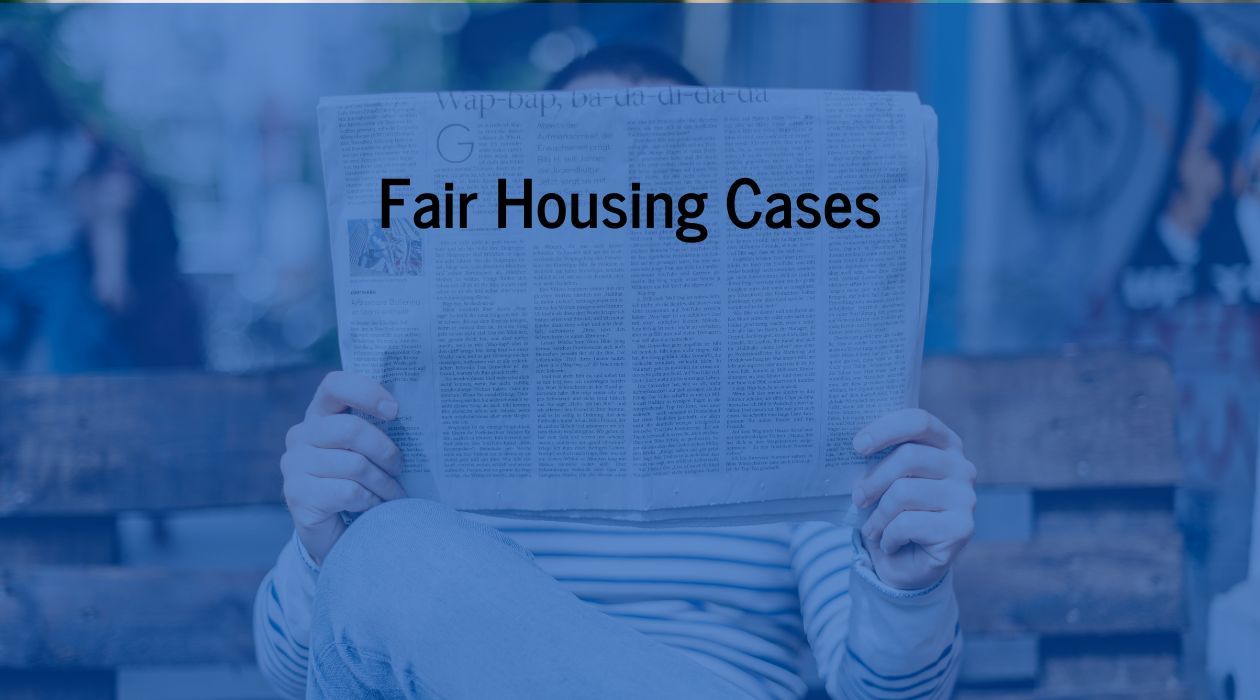Fair Housing Laws in Texas
Which Texas laws protect you against housing discrimination?
Housing discrimination has had a long history in the United States, ranging from subtle barriers to blatant inaccessibility. The lack of equitable housing access has stemmed from racism, homophobia, and other biases against specific groups of people.
Fortunately, there are fair housing laws in Texas and across the United States. A handful of policies have been created to preserve fair housing, most notably in the form of the Fair Housing Act of 1968. This Act is a facet of the Civil Rights Act, which prohibits housing discrimination based on things like:
- race
- color
- religion
- sex
- nation of origin
- disability
- familial status
Although the Fair Housing Act was revolutionary in its time, further analysis has found that housing discrimination is still a problem in many parts of the United States. This has resulted in additional steps (and challenges) at the state level.
What are the fair housing laws in Texas? We have gathered the details on Texas' fair housing policies so you can better understand how you are protected.

Fair Housing Act in Texas
In addition to adhering to the U.S. Fair Housing Act, there is a Fair Housing Act in Texas as well. This Act prohibits discrimination in housing sales, rentals, lending decisions, appraisals, and insurance terms. The language of the Texas Fair Housing Act specifically protects against discrimination based on race, nation of origin, religion, color, sex, familial status, and disability.
While the Texas Fair Housing Act does not have specific language protecting LGBTQ individuals statewide, many cities, counties, and other municipalities have additional protections that safeguard a wider range of people with more specific wording.
Several additions to the Fair Housing Act in Texas that widened protections also include:
The Age Discrimination Act of 1975 which prohibits discrimination on the basis of age in federally funded programs
Additional protections for disabled individuals through the Americans With Disabilities Act of 1990, and amendments that followed in 2008
The U.S. and Texas Fair Housing Acts specifically prohibit any advertising or statement of preference (race, immigration status, disability, etc.) when listing a property for sale or rental, and bans harassment, coercion, threats, or other forms of interference in an individual's pursuit of fair housing.
In the event that a Texan is faced with housing discrimination, they have the option of submitting a complaint to the Texas Workforce Commission Civil Rights Division (unless located in the Texas cities of Austin, Corpus Christi, Dallas, Fort Worth or Garland, where complaints should be made to the local fair housing offices of those respective cities). If you have already submitted a complaint to the U.S. Department of Housing & Urban Development (HUD), there is no need to also submit a complaint to TWC Civil Rights.
If you choose to go directly to HUD with your complaint, this video below provides guidance on how to proceed.
Equitable Sale and Rental of Housing
What does discrimination look like during the sale of a house or renting a house? Common examples of housing discrimination include:
- refusing to negotiate
- exploiting language barriers to take advantage of a home buyer or renter (the Fair Housing Act also specifically prohibits both public and private housing providers from refusing to rent to someone because they are a non-native English speaking or limited English proficiency (LEP) individual)
- refusing to show apartments or houses in certain neighborhoods
- denying access or membership to a specific facility or service
- lying about availability
- advertising preferred groups of applicants/buyers
If a prospective tenant or buyer is experiencing any of these forms of discrimination, the landlord or seller is likely in violation of the Fair Housing Act in Texas. It is recommended for you to speak with a civil rights attorney if you are in such a position. You can file a complaint with HUD or the Texas Workforce Commission Civil Rights Division to seek a just outcome.
Fair Mortgage Lending
Applying for a mortgage can be a daunting process for anyone. Buying a home is one of the biggest financial decisions many individuals will make. Such a large purchase can impact a family's entire future. That's why it's so important for the process to be as fair and transparent as possible.
Unfortunately, mortgage lenders will sometimes exploit or exhibit other predatory behaviors towards mortgage applicants. These bullying tactics and discriminatory acts include:
- refusing to provide a loan to an eligible applicant
- not providing language-accessible loan info (e.g. translated documents)
- denying property insurance
- adjusting or setting different terms
Discrimination in mortgage lending is illegal under the Fair Housing Act. Legal protection against discriminatory mortgage lending is especially crucial, as it can protect families from life-changing financial harm.
Fair Housing for Families

Except for housing designated for the elderly, no housing provider can discriminate based on familial status. Housing specifically designated for older individuals is usually exempt from the prohibitions of the Fair Housing Act; these properties are not sold or rented to younger individuals to preserve their availability for elderly people seeking affordable housing.
Families with non-traditional family structures may face biases and discrimination in housing. If a family has one or more children under the age of 18 living with a parent, guardians, or other legal custodians, they may not be discriminated against based on familial status.
Fair Housing for Individuals With a Disability
Among the most common fair housing concerns is a lack of accessibility for someone with a disability. In addition to the Fair Housing Act, the Americans with Disabilities Act of 1990 (ADA) added further protections to help Americans with disabilities find accommodating homes.
The laws in place to protect individuals with disabilities specify a housing provider/landlord may not:
- inquire about the disability status of a home buyer or rental prospect
- refuse to allow a disabled person from making necessary accommodations to live safely and comfortably in the dwelling (though landlords can reasonably request a tenant restore the property to its previous condition when they move)
- refuse to make accommodations in rules, policies, or practices
Demographics Commonly Targeted by Housing Discrimination
In spite of fair housing laws in Texas that prohibit blatant redlining and other racially discriminatory housing standards, there are still subtle barriers that keep people (especially Black and immigrant individuals) from seeking better housing. Scenarios (such as this event in Dallas) have prompted Black Texans to pursue help from organizations like The Inclusive Communities Project for additional help in securing good housing.
The LGBTQ community has also faced housing discrimination in Texas. As of yet, there is no specific wording in Texas law that protects individuals from discrimination based on sexual orientation or gender identity. This does not mean that a queer person would be without defense. You have options to file a complaint or seek protection may still be provided by HUD.
Fair Housing for All Texans
Have you been the victim of housing discrimination? If you experienced any kind of this discrimination, there are actions you can take to seek justice. Even if you are not in one of the minority groups specifically named in the FHA, there may be protective local laws that a lawyer can help you navigate.
If you are in a position where you need to file a complaint with the Texas Workforce Commission (TWC) Civil Rights Division, the process breaks down into the following steps:
- Determining jurisdiction and drafting the complaint - the TWC will determine if you are in their jurisdiction, will review your case, and will draft a complaint for you to sign.
- Initial Response - after you've signed, the TWC will submit your complaint to the party accused of discrimination. They will have the opportunity to submit a response, and will be invited to a settlement meeting (mediation).
- Mediation - if both parties agree to mediation, then the TWC will mediate the meeting, and you will hopefully come to an agreement to settle the case.
- Investigation - if no agreement is reached during mediation, an investigation will be launched. If the Division finds evidence of discrimination, it will file a lawsuit against the discriminatory parties; however, if they do not, you will need to seek a lawyer to file a civil suit.
- Conciliation - throughout the process, the TWC will try to guide both parties to conciliation. This agreement would take into account the interest of both parties, and hopefully reach a compromise.
- Reconsideration - in some cases, if the complainant receives a letter from the investigators that no reasonable cause of discrimination was found, the complainant may request a reconsideration.
Often, it's best to seek the help of an experienced lawyer to help you navigate the challenges of housing discrimination, especially in very nuanced circumstances. Your lawyer can be your advocate when you feel alone or overwhelmed by complex laws pertaining to your case.
We're Here to Support Texans
At McClain Bespoke Legal Solutions, we have both the foundation of knowledge and the spirit of empathy needed to provide you with great legal care. Founding attorney, Eli McClain, has long been an ally and supporter of numerous minority groups including the LGBTQ community. In every case, we will bring a determination to achieve a just outcome to your fair housing case. If you are in need of legal assistance, or just need your preliminary questions answered, get in touch with us and let us guide you through the fair housing laws in Texas.









